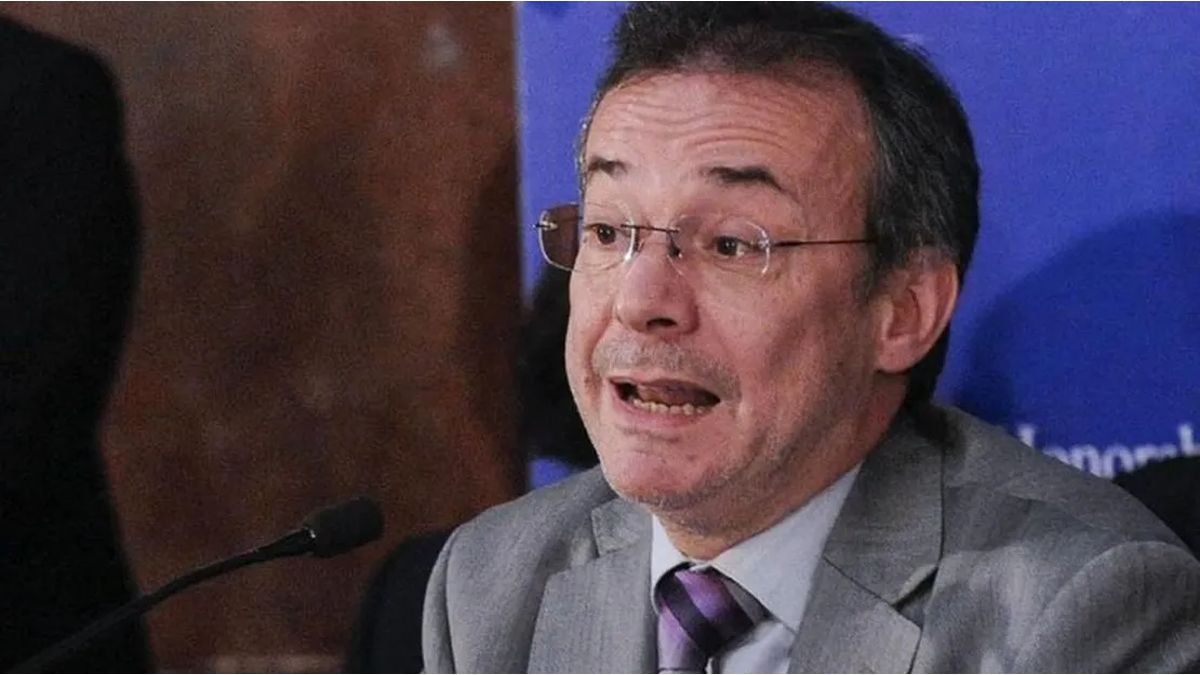The Government needs dollars and has been negotiating with the International Monetary Fund (IMF) the advance of disbursements scheduled for this year in the face of a tremendous shortage of foreign currency that caused the drought registered this year. In fact, this long weekend, which was implemented for Flag Day, a technical team travels to the United States to have a face-to-face meeting with agency officials. However, in this interview with Ambit, Daniel Artana, economist and director of the Latin American Economic Research Foundation (FIEL)warns that the great problem of Argentina goes beyond the lack of dollarswho considers it a self-inflicted situation.
The economist warns about the existence of “a chronic fiscal inconsistency” in our country that the current management did not resolve, but rather aggravated, criticizes that the Government “insists on continuing to burst dollars to try to control the exchange rate gap” and considers that this goes against the goal of growth that is constantly being set.
In this conversation with our medium, Artana considers that, going forward (regardless of the political sign of the next government), “Argentina should face an economic stabilization program” Focused on fiscal dynamics, it defines some of the main problems of the Argentine economy and diagnoses what can be expected between now and the elections.
Journalist: How do you see the current situation of the Argentine economy and the possibility of reaching an agreement with the IMF?
Daniel Artana: The Government has been failing to meet the Fund’s goals this year and I believe that the international organization had been taking an overly optimistic view regarding the loss of the harvest that caused the drought for Argentina. We have an economy with severe growth problems and inflation that is going to be higher than in 2022 and that complicates meeting the objectives. Thus, although this year’s reserve accumulation target was reduced by around US$1.8 billion, it is not enough because Argentina still has to accumulate reserves and, on the one hand, due to the drought, but also, as a consequence of the use of dollars to intervene in the exchange rate, it does not seem possible that reserves can be accumulated.
The soybean dollar 3, while it lasted, served to capture some dollars, but now that it’s over, the same thing happens on the previous occasions when it was implemented: once it ends, the problems that led to the launch of each edition return, which is the lack of dollars. In addition, the producers have a big problem, which is the drought, and they have less and less stock to sell, so even though there was a better reserve accumulation process in May than the one seen in April, it does not allow them to meet the program for the year. What these programs do is allow dollars to advance to the Central Bank that they would have collected anyway, but they do not solve the problems. The effect of this type of measures tends to be short-term.
Q.: Do you think that the main problem of the Argentine economy is the shortage of dollars?
GIVES: No, that’s a diagnostic error. The shortage of dollars is a problem self-inflicted by the economic policy of Kirchnerism. Argentina has had exports for US$90,000 million last year and only with an inconsistent macroeconomic policy could one be suffering from this supposed shortage of dollars that the Government points out today. With a normal economic policy, Argentina would have dollars left over or would have enough dollars, beyond the atypical situation of the drought, which should recover next year.
Simplifying the panorama, I think that The main problem of the Government is the inability of the Argentine leadership to have a sustainable fiscal policy over time. On the one hand, we have a greater fiscal deficit than we can finance and, therefore, we end up appealing to the inflationary resource as a liquefaction method. And, on the other, we do not have a structural policy aligned with an ambitious growth objective, but instead we have what is called a rent-seeking economy, full of controls and regulations, in which the different actors try to go looking for the “holes” within the tangle of regulations to earn more money. When, instead of seeking to become more productive, win markets and increase exports, people seek to improve their income, the economy does not work. There is a chronic fiscal inconsistency in Argentina that this government has not resolved and, in fact, has worsened. That goes against the goal of growth.
Daniel Artana
Daniel Artana, economic analyst and director of FIEL.
Q.: How do you see the government going to get to the elections?
DA: One wants the elections to arrive as well as possible because those who suffer the most are the citizens, especially the most vulnerable people. The economy had already fallen in the last four months of last year and I think it will recession in a context of high inflation. It is debatable what it is to arrive well, but inflation is high and activity is not healthy. It could be worse, but it’s not a good picture.
I think that Sergio Massa arrived at the Ministry of Economy in a problem of financial crisis and uncertainty, after the departure of Martín Guzmán and, later, of a minister who lasted a few days (in reference to Silvina Batakis). He is not an economist, but he has an important political volume and His arrival helped to calm things down, but regarding what was the objective of the management that was outlined in the Budget, which sought that annual inflation be at 60%, that the economy continue to grow and that the goals be met with the IMF, the truth is that none of these things is going to happen. It is true that there was an unprecedented drought, but also the strong intervention in the foreign exchange market, which was already being carried out during the Guzmán administration and continued during Massa’s, affects the problem. If they hadn’t wasted those dollars, they would be available for something else today.
Q.: What do you think are the main challenges for the next government?
GIVES: For the next government, the first question is develop a stabilization program, which, in the case of Argentina, is associated with the dynamics of the fiscal deficit. We must solve the tax pressure, which is very high, with a very negative mix of taxes and which results in an economy that is very inefficient like the one we have. On the other hand, you have to have an agenda of structural issues: realizing that you cannot live isolated from the world, you have to open up opportunities. In fact, economic integration with the European Union within the framework of Mercosur tended to do so, to be able to trade with one of the most important economic areas in the world.
The Government does not have financing and that causes the fiscal deficit to influence inflationary policy. Therein lies the problem: you have to break that relationship. Argentina has had moments in its history in which it managed to control inflation. We are not condemned to live with these levels. But I think things need to be changed that lead to this inflation, which has to do with fiscal dominance over monetary policy. The world has had inflationary problems lately that it did not have before, and what do you do to combat them? They have not done very innovative or revolutionary things: they have tightened their monetary policy. I believe that there are possibilities of addressing this type of policy and that a large part of the opposition and also of the ruling party have a diagnosis in this regard. I even think that Massa has a different perception within the Government of the need to update some regulations. In fact, progress has been made in the knowledge economy and there is a will to move towards greater integration of Argentina with the world.
Source: Ambito



